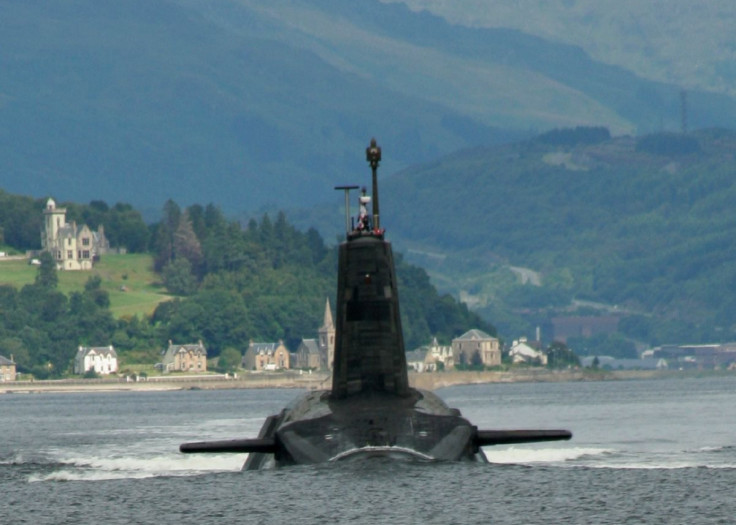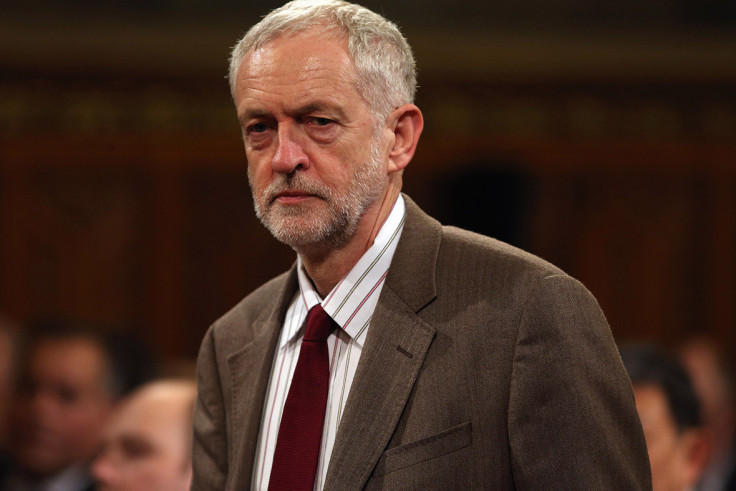Corbyn needs to toughen up on national security or Labour will never win an election

It is commonly said that history is written by the victors. Yet with respect to the Labour Party, the opposite holds true. New Labour may have vanquished all opposition at the ballot boxes, but in Labour folklore the period from 1994 to 2010 is recorded as a betrayal.
In a similar vein but from the opposite direction, current Labour leader Jeremy Corbyn's defeated opponents seek to portray Ed Miliband's 2015 electoral defeat as the inevitable consequence of a manifesto that was too left-wing. This was supposedly prophesised by Tony Blair when he predicted prior to the general election in May last year that it would be one in which 'a traditional left-wing party competes with a traditional right-wing party, with the traditional result'.
Without delving too deeply into yet another post-mortem of the election, there is something to be said for both the left and right in their criticisms of Labour's crushing defeat. As Labour 'moderates' like to point out, Ed Miliband's Labour Party was seen by voters as too generous on welfare, too profligate with other peoples' money and too relaxed about immigration. But the left is also right to say that Ed Miliband's attacks on profiteering utility companies, unscrupulous employers and buy-to-let landlords were popular with voters.
Putting aside the various self-serving assessments of Labour's defeat, overriding everything in May 2015 was a sense that Labour had 'crashed the car' – the 'car' being the British economy – during its time in government. Labour were perceived to have wrecked the economy while in office, and there was little the party could do to convince the electorate otherwise. The 2008 crash was to Labour what the 1992 ERM crisis was to the Conservatives.
Thus the big lesson from May 2015 ought to have been this: some issues transcend left and right. Some voter perceptions are so significant that, however impressive the catalogue of policies a party offers to the electorate, and however much it clings to the centre ground or eschews it, a deal-breaker can sit in the mix waiting to explode like a stick of dynamite in a burning building. For the Tories in 1997 it was Black Wednesday; for Neil Kinnock in 1992 it was tax; for Ed Miliband it was the 2008 financial crash and his own personality. For Jeremy Corbyn in 2020 it will be national security.
Thus, leading up to the next election, Labour can talk as much as it likes about the so-called 'bread and butter' economic issues, but it would find it impossible to win when just 29% trust its leader to keep Britain safe. As in the past, the electoral deal-breaker would tower over every Labour initiative like the Shard building casts its shadow over London Bridge. Even the most united front on the economy would fail to mask the rancid smell of what is perceived to be Jeremy Corbyn's anti-Western worldview.
It is worth pointing this out now because, as May's local elections approach, the various Labour factions are gingerly placing their swords back in their scabbards and calling for unity on issues where within Labour there is broad agreement. The argument goes something like this: Labour should stop banging on about Trident and the Middle East and start talking about bread and butter issues such as the economy and low pay. As high-profile Corbyn supporter Owen Jones put it on the Daily Politics recently, domestic policy is "where Labour needs to focus" because it is here that the party is "pretty united".
One can see the logic to this. Britain is crying out for a radical alternative to an actually quite unimpressive Conservative leadership. Jeremy Corbyn and his team are regularly dismissed as characters of the 'loony left', yet there is nothing 'moderate' about paying off the country's debts on the back of the poor and a struggling middle class. John McDonnell was right to say back in August that Labour does not "believe that the vast majority of middle-and low-income earners who didn't cause the economic crisis should have to pay for it through cuts in tax credits, pay freezes and cuts in essential services".

It is of course partially true that, for the average voter, foreign policy is of little importance compared with things such as healthcare and jobs. According to those polled by Ipsos MORI in January, the biggest issues facing Britain are immigration, the NHS and the economy – in that order. But coming next, on 23%, is defence and foreign affairs. The long shadow of the Iraq war may mean that Britons remain reluctant to deploy 'boots on the ground' in the Middle East, but British public opinion remains a significant distance from the anti-Western isolationism of Corbyn's beloved Stop the War Coalition.
Yet were foreign policy of no importance to an inward-looking electorate, it would still be a toxic deal-breaker for Jeremy Corbyn. National security is, after all, not only about war but about patriotism, too. Do you believe that the British way of life is worth preserving? Do you believe in Britain's potential to do good in the world? And no less importantly, do you believe there are more malevolent forces in the world than David Cameron?
I suspect most of the electorate are quite clear as to how they would answer all of these questions. I also imagine they would sniff out Jeremy Corbyn's apparent ambivalence like a dog sniffs out a fresh cut of meat.
This gets to the crux of the left's wider problem. As we inch our way towards the next economic downturn, it is clear that Western economies are not working as they should do for ordinary people. As Bernie Sanders is demonstrating in the United States, a window has opened up through which the left can project its arguments. A political opportunity exists for a genuine radicalism.
But the Labour Party would see no benefit from the new political reality until it grasps a simple truth: for most of us, our relationship with Britain resembles a turbulent marriage; it may not all be smooth sailing, but few things rankle more than the outsider who seeks continually to run it down. Labour can offer voters as many economic sweeteners as it likes. The British electorate would sooner swallow poison than vote for a leader who does not appear to view this country, for all its flaws, as something that is worth defending.
© Copyright IBTimes 2025. All rights reserved.






















